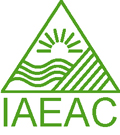How Next Generation Sequencing is Advancing Food Safety and Public Health
A fundamental tenet of FDA’s oversight of food safety is to use the best available science to identify, prevent, and contain hazards that cause foodborne illness. A prime example of FDA adhering to this principle is its work to create a network of laboratories with whole genome sequencing (WGS) capability. The GenomeTrakr network was established to facilitate the sharing of pathogen sequence data between public health agencies, academia, and the food industry, with the goal of preventing large-scale foodborne illness outbreaks. A significant advantage of the large, publicly accessible WGS database created by the GenomeTrakr network is the ability to identify root causes of foodborne contamination by linking geographically and temporally dispersed strains of pathogenic bacteria to their common source with unprecedented precision. Comparative analysis of Salmonella and Listeria genomes, previously deemed indistinguishable by conventional subtyping methodologies, enables earlier interventions when cases of foodborne illness occur. As the number of sequences in open-source databases increases, FDA envisions the information being used to identify emerging drug resistance concerns, to develop rapid methods, and to inform foodborne illness prevention strategies in food facilities and on the farm.
Marc Allard

Marc W. Allard received his Ph.D. in biology in 1990 from Harvard University. Dr. Allard was the Louis Weintraub Associate Professor of Biology at George Washington University for 14 years from 1994 to 2008. Dr. Allard joined the Division of Microbiology in FDA’s Office of Regulatory Science in 2008 where he uses Whole Genome Sequencing of foodborne pathogens to characterize outbreaks of bacterial strains, particularly Salmonella, E. coli, and Listeria.
Dr. Allard was recently promoted to Senior Biomedical Research Services and he specializes in both phylogenetic analysis, as well as the biochemical laboratory methods which generate this genetic information.

